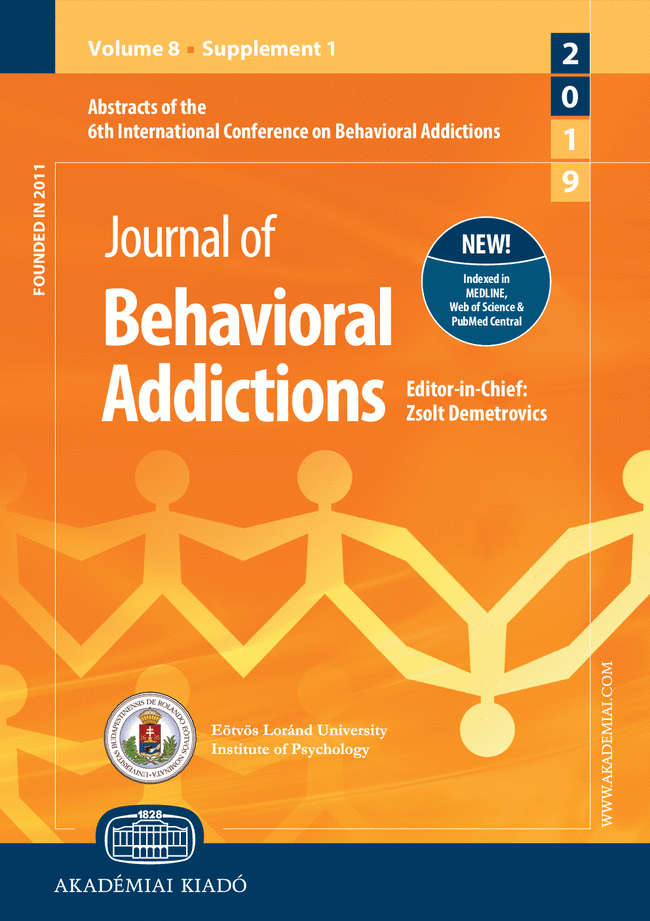Weapon-carrying is associated with more permissive gambling attitudes and perceptions and at-risk/problem gambling in adolescents
Weapon-carrying is associated with more permissive gambling attitudes and perceptions and at-risk/problem gambling in adolescents
Author(s): Zu Wei Zhai, Rani A. Hoff, Caitlin F. Magruder, Marvin A. Steinberg, Jeremy Wampler, Suchitra Krishnan-Sarin, Marc N. PotenzaSubject(s): Behaviorism
Published by: Akadémiai Kiadó
Keywords: weapon-carrying; gambling; violence; adolescent; high school; problem behaviors
Summary/Abstract: Background and aims. A recent call to action highlighted the need to understand the relationship between problem gambling, violence, and health/functioning. As weapon-carrying and gambling behaviors are prevalent in adolescents, this study systematically examined relationships between weapon-carrying status and measures of problem gambling severity and gambling perceptions and attitudes, as well as how weapon-carrying status moderated relationships between problem gambling severity and measures of health/functioning and gambling behavior. Methods. Participants were 2,301 Connecticut high-school adolescents. χ2 and logistic regression models were conducted. Results. Weapon-carriers reported greater problem gambling severity, more permissive gambling perceptions, greater parental approval of gambling, and more family gambling concerns, compared to non-weapon-carriers. At-risk/problem gambling was more strongly associated with family, peers, and adult gambling partners among non-weapon-carriers (vs. weapon-carriers) and with machine gambling among weapon-carriers (vs. non-weapon-carriers). Discussion and conclusions. Greater problem gambling severity and more permissive gambling perceptions and perceived parental approval of gambling in weapon-carrying adolescents suggest that parent–child relationships are important to be considered in prevention efforts. The moderated relationship by weapon-carrying status between problem gambling severity and gambling partners suggests a problem gambling risk group that may be less linked to gambling with traditional social support groups, and this group may benefit from targeted interventions
Journal: Journal of Behavioral Addictions
- Issue Year: 8/2019
- Issue No: 3
- Page Range: 508-521
- Page Count: 14
- Language: English

